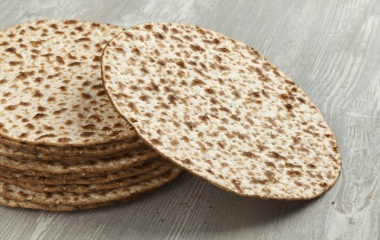
G-d's greatest gift to man is that He created us in His image. As heretical as it sounds, man and G-d are, in effect, opposite sides of the same coin. Flowing from this is the notion that all aspects of our relationship to G-d must be reflected in our actions towards man, and our actions towards our fellow man must be reflected in our relationship to G-d. This can best be seen in the aseret hadibrot, which can be read both vertically and horizontally. If the latter, belief in G-d is juxtaposed to the prohibition of murder, and the prohibition against having many gods is reflected in the prohibition of adultery.
Rabbi Akiva famously taught that the verse "love your neighbour as yourself" is the fundamental principle of the Torah. Thus, the need for a mitzvah to love G-d. That, too, is perhaps the central mitzvah of our relationship to G-d, and something we say twice a day as we recite the Shema.
The Rambam, in the final chapter of Hilchot Teshuva, beautifully describes how our love towards our spouses--the primary meaning of re'acha, your neighbor--must lead us to love of G-d. And if there is a mitzvah to love G-d, then it must follow that G-d loves us. We should not be surprised to find that Abraham is described as "My beloved".
Yet in all human interactions, there are people we like more and those we like a bit less. G-d, too, keviyachol, has some people He likes more than others. And If G-d likes those people more, well, then so should we.
"Three the Holy One blessed be He loves: one who does not get angry, one who does not get drunk, and one who does not insist on his honor" (Pesachim 113b). This needs little elaboration. Yet it is interesting to note that G-d's love is aroused not by us actually doing something positive, but by refraining from acting in a particular way. Whereas feelings of love towards a fellow human being are generally triggered by positive actions we take, the love of G-d towards us is different. Not acting out some of our base motivations is cause enough for G-d to increase His love towards us.
This idea is reflected in the Torah itself. "Just be strong and do not eat blood...so that it will be good for you and your children after you" (Devarim 12:23, 25). Rashi, quoting our Sages, notes that the Torah is teaching the great reward for mitzvoth; "If blood, for which man has an aversion, one who separates from it merits for him and his children, how much more so for theft and sexual immorality, which the body desires?" If refraining from sin offers so much reward, how much more so does the performance of mitzvoth!
It is not easy to control our anger--the greatest of our people, Moshe Rabbeinu, fell victim to this on at least three occasions, demonstrating the rabbinic dictum that "he who comes to anger comes to mistake" (see Rashi, Bamidbar 31:21). According to many commentaries, it was anger that cost Moshe his leadership and his opportunity to enter the land of Israel. Nor is it easy to control our alcohol intake--Noach, who is described by G-d as "a righteous and pure person", tragically got drunk, leading to his castration; and who amongst us is willing to waive honour due us?
Yet, if we can do so, we will merit the great love of G-d. There can be no greater reward and no greater motivation than that.



